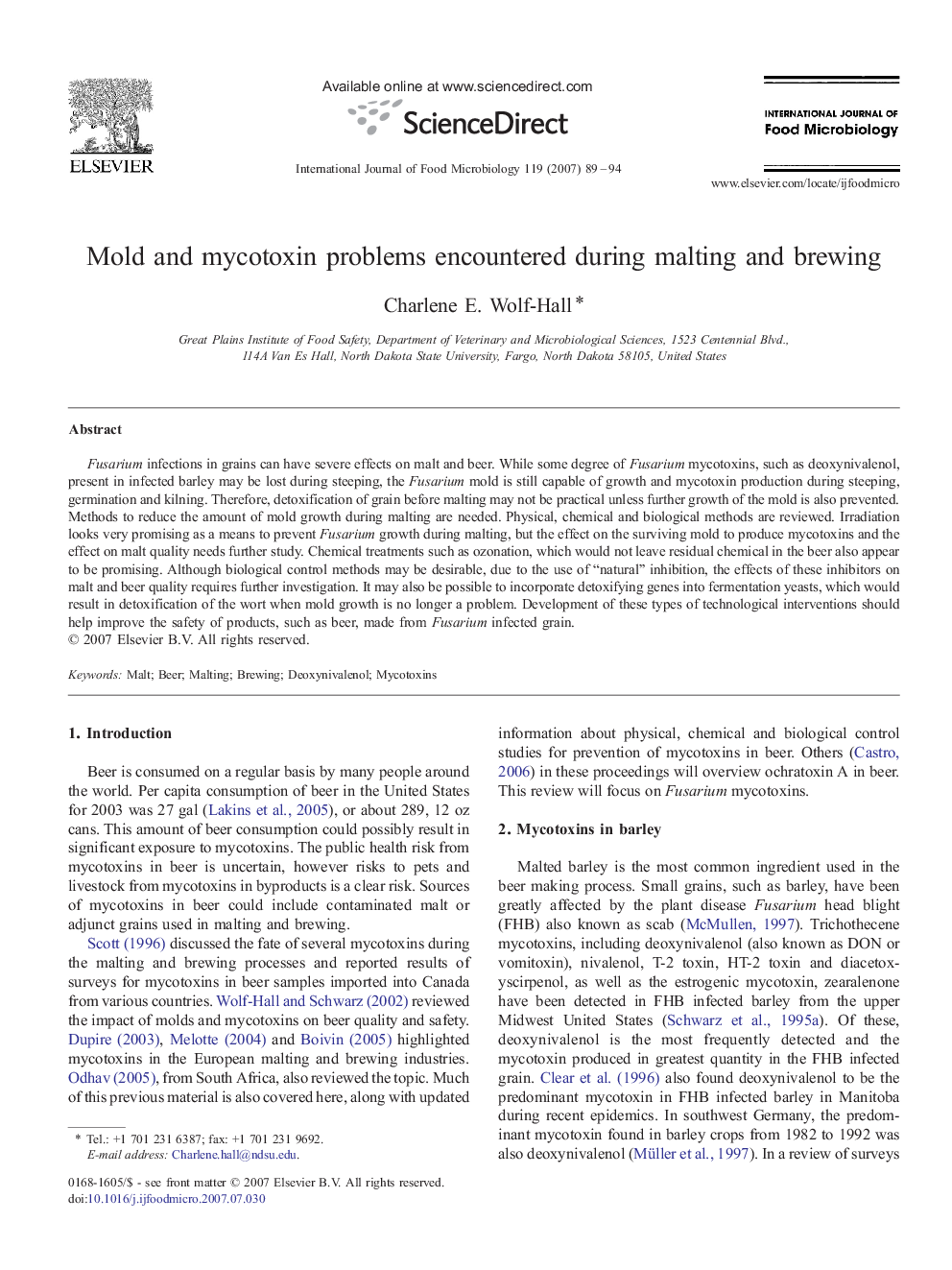| کد مقاله | کد نشریه | سال انتشار | مقاله انگلیسی | نسخه تمام متن |
|---|---|---|---|---|
| 4369331 | 1616738 | 2007 | 6 صفحه PDF | دانلود رایگان |

Fusarium infections in grains can have severe effects on malt and beer. While some degree of Fusarium mycotoxins, such as deoxynivalenol, present in infected barley may be lost during steeping, the Fusarium mold is still capable of growth and mycotoxin production during steeping, germination and kilning. Therefore, detoxification of grain before malting may not be practical unless further growth of the mold is also prevented. Methods to reduce the amount of mold growth during malting are needed. Physical, chemical and biological methods are reviewed. Irradiation looks very promising as a means to prevent Fusarium growth during malting, but the effect on the surviving mold to produce mycotoxins and the effect on malt quality needs further study. Chemical treatments such as ozonation, which would not leave residual chemical in the beer also appear to be promising. Although biological control methods may be desirable, due to the use of “natural” inhibition, the effects of these inhibitors on malt and beer quality requires further investigation. It may also be possible to incorporate detoxifying genes into fermentation yeasts, which would result in detoxification of the wort when mold growth is no longer a problem. Development of these types of technological interventions should help improve the safety of products, such as beer, made from Fusarium infected grain.
Journal: International Journal of Food Microbiology - Volume 119, Issues 1–2, 20 October 2007, Pages 89–94